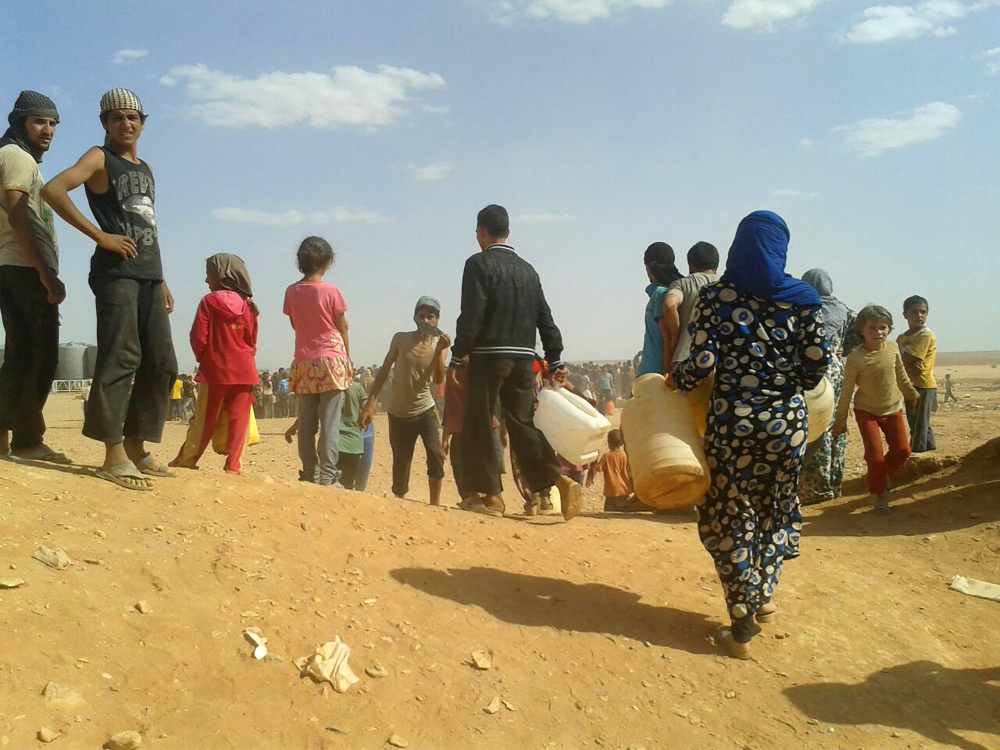Editor’s note: This story is part of an occasional Associated Press series examining the issues at stake in the presidential election between now and Election Day. Read more from “Why it matters.“
THE ISSUE
The United States is the proud home of “the mother of exiles,” the Statue of Liberty. But of the millions of exiles from the Syrian war, only about 10,000 have reached U.S. shores.
Other countries are taking in more, though vast numbers of Syrians remains dispossessed. And even the limited number of Syrians coming to America is a source of hot contention in the presidential campaign as humanitarian impulses tangle with security worries in the debate.
WHERE THEY STAND
Republican Donald Trump has repeatedly called for a moratorium on accepting Syrian refugees. His position is part of a broader stance on immigrants that has ranged from a complete ban on foreign Muslim immigrants entering the United States “until we know what the hell is going on” to “extreme” vetting and an ideological test for would-be immigrants from countries and regions plagued by extremism.
Democrat Hillary Clinton has said she would expand President Barack Obama’s refugee program to accept about 65,000 Syrian refugees. This would be in addition to the tens of thousands of refugees accepted from around the world every year. Clinton said she would continue with the vetting currently in place, an effort that can take multiple years to complete.

Graphic shows refugees admitted to the U.S. since 1990 and proposed distribution of FY2017 refugees.
WHY IT MATTERS
Hundreds of thousands of Syrians have sought refuge in Europe while many others wait in neighboring countries and refugee camps for the war to end or a chance to move away from the carnage. Obama pledged the U.S. would accept 10,000 Syrians this budget year, which ends Sept. 30, and achieved that number a month early. This is in addition to about 75,000 refugees from other parts of the world.
Meantime, Canada, with a little over one-tenth the population of the U.S., resettled 25,000 in four months and is processing about 19,000 more applications.
The influx of people from a region plagued by war and terrorism has some concerned about who may be coming to the United States. At issue for many people – prominent Republicans among them – has been the vetting of refugees, especially after multiple, deadly attacks in France and Belgium. They worry Islamic State militants or sympathizers will infiltrate the refugee ranks.
The Obama administration has said the vetting is thorough and involves multiple in-person interviews and checks by the intelligence community and federal law enforcement. Would-be refugees are asked for biographical details about themselves, including their relatives, friendships, social or political activities, employment and education, phone numbers, email accounts and more. They must also provide biometric information, like fingerprints. But no system is foolproof.
Two Iraqi refugees were arrested in Kentucky in 2011 on charges that they were trying to send money and weapons to groups fighting the United States in Iraq. But no Syrian refugees have been accused of plotting or carrying out attacks inside the United States.
The future of refugee processing for Syrians almost certainly hinges on the outcome of the election.
Send questions/comments to the editors.


